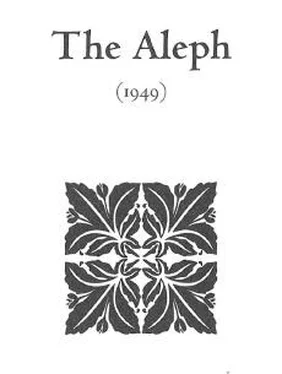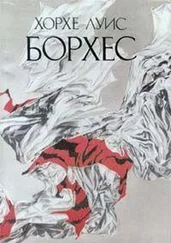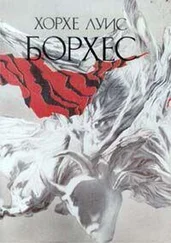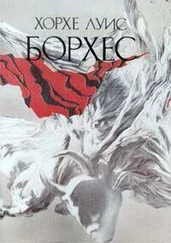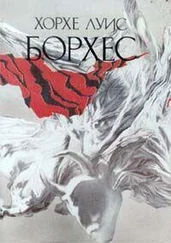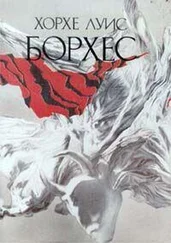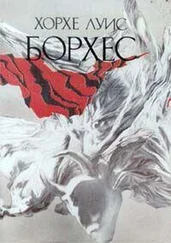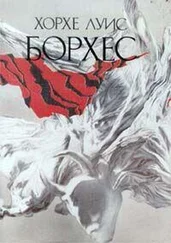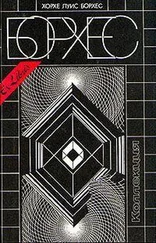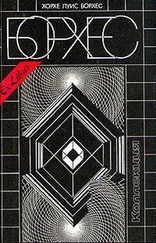Хорхе Борхес - Collected Fictions
Здесь есть возможность читать онлайн «Хорхе Борхес - Collected Fictions» весь текст электронной книги совершенно бесплатно (целиком полную версию без сокращений). В некоторых случаях можно слушать аудио, скачать через торрент в формате fb2 и присутствует краткое содержание. Год выпуска: 1999, ISBN: 1999, Издательство: Penguin (UK), Жанр: Старинная литература, на английском языке. Описание произведения, (предисловие) а так же отзывы посетителей доступны на портале библиотеки ЛибКат.
- Название:Collected Fictions
- Автор:
- Издательство:Penguin (UK)
- Жанр:
- Год:1999
- ISBN:9780140286809
- Рейтинг книги:5 / 5. Голосов: 1
-
Избранное:Добавить в избранное
- Отзывы:
-
Ваша оценка:
- 100
- 1
- 2
- 3
- 4
- 5
Collected Fictions: краткое содержание, описание и аннотация
Предлагаем к чтению аннотацию, описание, краткое содержание или предисловие (зависит от того, что написал сам автор книги «Collected Fictions»). Если вы не нашли необходимую информацию о книге — напишите в комментариях, мы постараемся отыскать её.
Collected Fictions — читать онлайн бесплатно полную книгу (весь текст) целиком
Ниже представлен текст книги, разбитый по страницам. Система сохранения места последней прочитанной страницы, позволяет с удобством читать онлайн бесплатно книгу «Collected Fictions», без необходимости каждый раз заново искать на чём Вы остановились. Поставьте закладку, и сможете в любой момент перейти на страницу, на которой закончили чтение.
Интервал:
Закладка:
In spite of those three obstacles, Menard's fragmentary Quixote is more subtle than Cervantes'. Cervantes crudely juxtaposes the humble provincial reality of his country against the fantasies of the romance, while Menard chooses as his "reality" the land of Carmen during the century that saw the Battle of Lepanto and the plays of Lope de Vega. What burlesque brush-strokes of local color that choice would have inspired in a Maurice Barresor a Rodriguez Larreta*! Yet Menard, with perfect naturalness, avoids them. In his work, there are no gypsy goings-on or conquistadors or mystics or Philip Us or autosda fé. Heignores, overlooks—or banishes—local color. That disdain posits a new meaning for the "historical novel." That disdain condemns Salammbô, with no possibility of appeal.
No less amazement visits one when the chapters are considered in isolation. As an example, let us look at Part I, Chapter XXXVIII, "which treats of the curious discourse that Don Quixote made on the subject of arms and letters." It is a matter of common knowledge that in that chapter, don Quixote (like Quevedo in the analogous, and later, passage in La hora de to-dos) comes down against letters and in favor of arms. Cervantes was an old soldier; from him, the verdict is understandable. But that Pierre Menard's don Quixote—a contemporary of La trahison des clercs and Bertrand Russell—should repeat those cloudy sophistries! Mme. Bachelier sees in them an admirable (typical) subordination of the author to the psychology of the hero; others (lacking all perspicacity) see them as a transcription of the Quixote; the baronessde Bacourt, as influenced by Nietzsche. To that third interpretation (which I consider irrefutable), I am not certain I dare to add a fourth, though it agrees very well with the almost divine modesty of Pierre Menard: his resigned or ironic habit of putting forth ideas that were the exact opposite of those he actually held. (We should recall that diatribe against Paul Valéry in the ephemeral Surrealist journal edited by Jacques Reboul.) The Cervantes text and the Menard text are verbally identical, but the second is almost infinitely richer. (More ambiguous, his detractors will say—but ambiguity is richness.)
It is a revelation to compare the Don Quixote of Pierre Menard with that of Miguel de Cervantes. Cervantes, for example, wrote the following (Part I, Chapter IX):
... truth, whose mother is history, rival of time, depository of deeds, witness of the past, exemplar and adviser to the present, and the future's counselor.
This catalog of attributes, written in the seventeenth century, and written by the "ingenious layman" Miguel de Cervantes, is mere rhetorical praise of history. Menard, on the other hand, writes:
... truth, whose mother is history, rival of time, depository of deeds, witness of the past, exemplar and adviser to the present, and the future's counselor.
History, the mother of truth!—the idea is staggering. Menard, a contemporary of William James, defines history not as a delving into reality but as the very fount of reality. Historical truth, for Menard, is not "what happened"; it is what we believe happened. The final phrases— exemplar and adviser to the present, and the future's counselor —are brazenly pragmatic.
The contrast in styles is equally striking. The archaic style of Menard— who is, in addition, not a native speaker of the language in which he writes—is somewhat affected. Not so the style of his precursor, who employs the Spanish of his time with complete naturalness.
There is no intellectual exercise that is not ultimately pointless. A philosophical doctrine is, at first, a plausible description of the universe; the years go by, and it is a mere chapter—if not a paragraph or proper noun—in the history of philosophy. In literature, that "falling by the wayside," that loss of "relevance," is even better known. The Quixote, Menard remarked, was first and foremost a pleasant book; it is now an occasion for patriotic toasts, grammatical arrogance, obscene deluxe editions. Fame is a form—perhaps the worst form—of incomprehension.
Those nihilistic observations were not new; what was remarkable was the decision that Pierre Menard derived from them. He resolved to anticipate the vanity that awaits all the labors of mankind; he undertook a task of infinite complexity, a task futile from the outset. He dedicated his scruples and his nights "lit by midnight oil" to repeating in a foreign tongue a book that already existed. His drafts were endless; he stubbornly corrected, and he ripped up thousands of handwritten pages. He would allow no one to see them, and took care that they not survive him. [3]
In vain have I attempted to reconstruct them.
I have reflected that it is legitimate to see the "final" Quixote as a kind of palimpsest, in which the traces—faint but not undecipherable—of our friend's "previous" text must shine through. Unfortunately, only a second Pierre Menard, reversing the labors of the first, would be able to exhume and revive those Troys....
"Thinking, meditating, imagining," he also wrote me, "are not anomalous acts—they are the normal respiration of the intelligence. To glorify the occasional exercise of that function, to treasure beyond price ancient and foreign thoughts, to recall with incredulous awe what some doctor universalis thought, is to confess our own languor, or our own barbarie. Every man should be capable of all ideas, and I believe that in the future he shall be."
Menard has (perhaps unwittingly) enriched the slow and rudimentary art of reading by means of a new technique—the technique of deliberate anachronism and fallacious attribution. That technique, requiring infinite patience and concentration, encourages us to read the Odyssey as though it came after the AEneid, to read Mme. Henri Bachelier's Le jardin du Centaure as though it were written by Mme. Henri Bachelier. This technique fills the calmest books with adventure. Attributing the Imitatio Christi to Louis Ferdinand Céline or James Joyce—is that not sufficient renovation of those faint spiritual admonitions?
Nîmes, 1939
[1] Mme. Henri Bachelier also lists a literal translation of Quevedo's literal translation of St. Francis de Sales's Introductionà la vie dévote. In Pierre Menard's library there is no trace of such a work. This must be an instance of one of our friend's droll jokes, misheard or misunderstood.
[2] I did, I might say, have the secondary purpose of drawing a small sketch of the figure of Pierre Menard—but how dare I compete with the gilded pages I am told the baroness de Bacourt is even now preparing, or with the delicate sharp crayon of Carolus Hourcade?
[3] I recall his square-ruled notebooks, his black crossings-out, his peculiar typographical symbols, and his insect-like handwriting. In the evening, he liked to go out for walks on the outskirts of Nîmes; he would often carry along a notebook and make a cheery bonfire.
The Circular Ruins
And if he left off dreaming about you ...
Through the Looking-Glass, VI
No one saw him slip from the boat in the unanimous night, no one saw the bamboo canoe as it sank into the sacred mud, and yet within days there was no one who did not know that the taciturn man had come there from the South, and that his homeland was one of those infinite villages that lie up-river, on the violent flank of the mountain, where the language of the Zend is uncontaminated by Greek and where leprosy is uncommon. But in fact the gray man had kissed the mud, scrambled up the steep bank (without pushing back, probably without even feeling, the sharp-leaved bulrushes that slashed his flesh), and dragged himself, faint and bloody, to the circular enclosure, crowned by the stone figure of a horse or tiger, which had once been the color of fire but was now the color of ashes. That ring was a temple devoured by an ancient holocaust; now, the malarial jungle had profaned it and its god went unhonored by mankind. The foreigner lay down at the foot of the pedestal.
Читать дальшеИнтервал:
Закладка:
Похожие книги на «Collected Fictions»
Представляем Вашему вниманию похожие книги на «Collected Fictions» списком для выбора. Мы отобрали схожую по названию и смыслу литературу в надежде предоставить читателям больше вариантов отыскать новые, интересные, ещё непрочитанные произведения.
Обсуждение, отзывы о книге «Collected Fictions» и просто собственные мнения читателей. Оставьте ваши комментарии, напишите, что Вы думаете о произведении, его смысле или главных героях. Укажите что конкретно понравилось, а что нет, и почему Вы так считаете.
